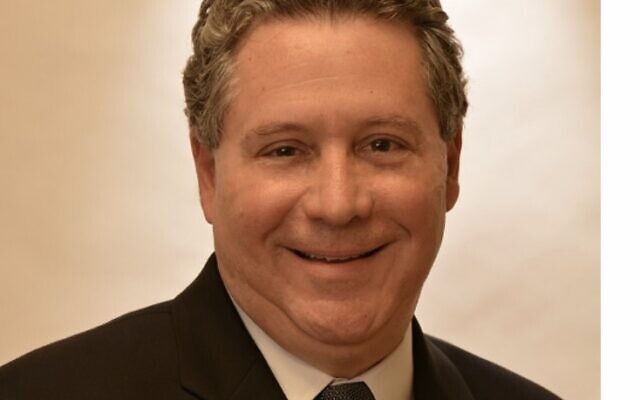Odontophobia: Do You Fear the Dentist?
Dr. Ken Goldstein and therapist Scott Taylor join forces to allay patients’ fears.
After 37 years with the Atlanta Journal-Constitution and now with the AJT, , Jaffe’s focus is lifestyle, art, dining, fashion, and community events with emphasis on Jewish movers and shakers.

Fear of public speaking, flying, and dental procedures continue to plague some of us. Does the whirl of the drill, the smell of chemicals, and the anticipation of an injection create angst? Scary experiences and vivid on-screen portrayals probably don’t help. Think of the dentist scene in “Little Shop of Horrors” or Dustin Hoffman being tortured in “Marathon Man.” Endodontist (root canal specialist) Dr. Ken Goldstein and therapist Scott Taylor, friends since their brotherhood in AEPi at UGA, recently presented “Root Canal Therapy: Behind the Fear” to the Alpha Omega Dental Fraternity.
Goldstein said, “Fear of the dentist is still huge. Many patients would rather deal with the pain than come see a dentist, let alone an endodontist; and in the last year, many blame COVID for that. Dental anxiety doesn’t affect a particular population. It’s worldwide. Statistics show 2.5 to 20 percent of the patient population is fearful of the dentist. Studies indicate females are more fearful, most likely stemming unfortunately from a past bad experience. We cannot change the past, but with the advancement of modern dentistry, we hope the days of bad experiences should be at a minimum. The problem is convincing the fearful patient of this.”
Taylor agreed that childhood experiences can affect a person’s expectations of a dental visit later in life. “A child’s fear of the unknown will be a major component of the dental visit. The memories and fears often carry over into adulthood. Children are also impacted by the reactions of others, including peers and adults. Nonverbal communication, such as a facial expression, alters how we perceive things. This type of nonverbal communication is very powerful. The established fear or concern is now compounded due to the negative influence of others.”
Why all the jokes about root canals? Goldstein says, “Root canal therapy has a bad reputation on social media due to the misinformation that prospective patients can take to heart. As an endodontist, I know the benefits of what a root canal can do for a patient. It’s part of my job to make sure the patient understands this. However, just like all aspects of dentistry, we are in a tug of war with a patient’s mixed emotions and fears, such as the fear of not being numb enough. With today’s technology in anesthetics and techniques, we hope this fear will become a thing of the past, along with the fear of the actual injection. Another common fear is of the handpiece or drill. The good news on this front is today’s handpieces are a lot quieter, and patients do not hear that piercing sound old drills used to make. I have been in private practice for 24 years and seen a lot of advances in technology that can make a patient’s dental appointment more tolerable, and dare I say ‘enjoyable?’”
Taylor’s experience has been that counseling can help patients cope with their fears and anxieties regarding a dental appointment. Learning about the patient allows the therapist to assist in identifying coping mechanisms, such as relaxation techniques that include imagery work, deep breathing, making a list of concerns, and even setting up a tour of the dental office.
Goldstein delves further into that fear. What about the appointment brings on the anxiety? “Patients have stated that the smell of the office, the color of the walls, the PPE the staff is wearing, and the actual ‘vibe’ of the office can elicit anxiety or fear. With this information, the dentist could possibly make sure that these triggers are nonexistent at the next appointment, which may decrease that particular fear or anxiety.”
You might also want to consult with your doctor about oral anti-anxiety medications like Xanax, Valium, or even nitrous oxide gas to relax you.
- Marcia Caller Jaffe
- Health and Wellness
- Local
- University of Georgia
- aepi
- Dr. Ken Goldstein
- Scott Taylor
- Odontophobia
- Dentist
- “Little Shop of Horrors”
- Dustin Hoffman
- “Marathon Man"
- Endodontist
- “Root Canal Therapy: Behind the Fear”
- Alpha Omega Dental Fraternity
- COVID
- Dental anxiety
- NonVerbal Communication
- childhood experience
- Root canal
- social media
- anesthetics
- techniques
- injection
- handpiece
- drill
- private practice
- coping mechanisms
- relaxation techniques
- imagery work
- deep breathing
- list of concerns
- tour of the dental office
- Anxiety
- Fear
- PPE
- Xanax
- Valium
- nitrous oxide gas



comments